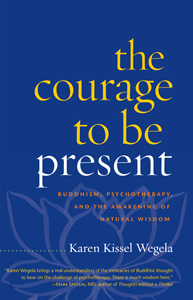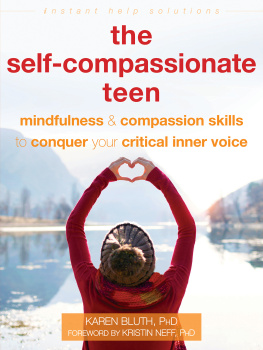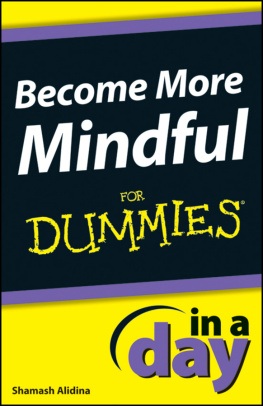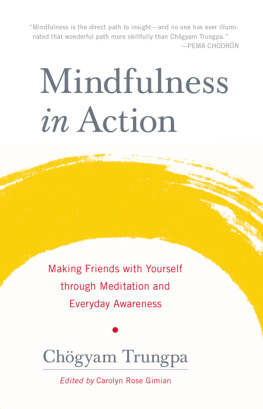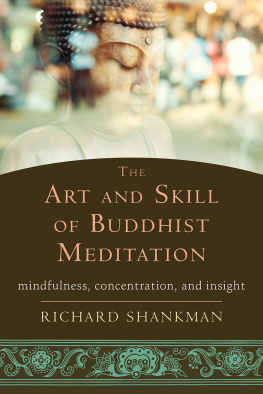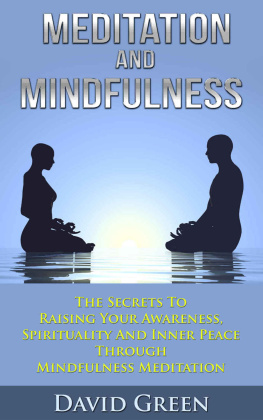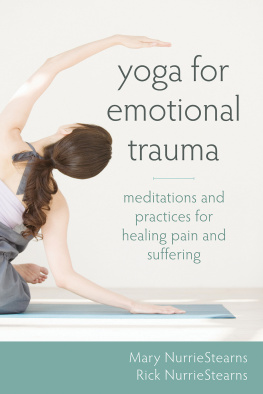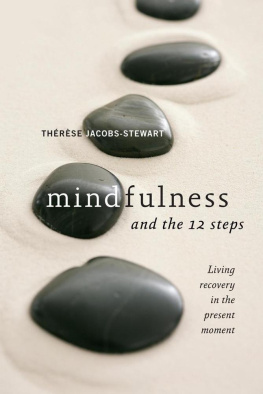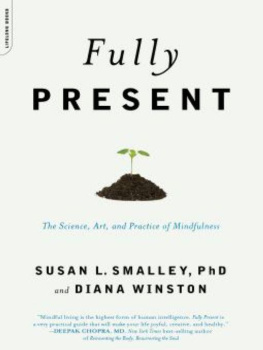A step-by-step handbook on becoming present to oneself so as to be able to offer meaningful help to friends, relatives, and clients in distress. Written in simple, direct language.
Publishers Weekly
ABOUT THE BOOK
Most of us, at one time or another, would like to help a friend, family member, or acquaintance through a challenging time. But do we really know how to give meaningful support and guidance? And why do our best efforts at helping others often come up short? Here is a practical guide that will be of special interest to helping professionalsand anyone who wants to make a positive difference in the lives of people they care about.
To be truly helpful to others, Karen Wegela explains, we must begin by focusing on ourselves. We must develop greater awareness, steadiness of mind, fearlessness, and self-compassion. Only then we can extend these qualities to the people wed like to help. Drawing on her experiences as a psychotherapist and on her longtime study of Buddhist meditation, Wegela emphasizes the benefits of mindfulness, or learning to become fully present in our moment-to-moment experience. Through mindfulness we develop a fearless, compassionate presence in our daily livesand we become better listeners, take wiser actions, and give more valuable, effective guidance to the people wed like to help.
KAREN KISSEL WEGELA, PhD, is a psychotherapist and professor of contemplative psychology at Naropa University in Boulder, Colorado. A longtime student of Buddhism, she speaks to professionals about the connections between Buddhism and psychotherapy and writes a popular blog at psychologytoday.com. She is also the author of The Courage to Be Present: Buddhism, Psychotherapy, and the Awakening of Natural Wisdom.
Sign up to learn more about our books and receive special offers from Shambhala Publications.

Or visit us online to sign up at shambhala.com/eshambhala.
What Really Helps
Using Mindfulness and Compassionate
Presence to Help, Support,
and Encourage Others
KAREN KISSEL WEGELA

SHAMBHALA
Boston & London
2011
Shambhala Publications, Inc.
Horticultural Hall
300 Massachusetts Avenue
Boston, Massachusetts 02115
www.shambhala.com
1996, 2011 by Karen Kissel Wegela
This book is a revised edition of How to Be a Help Instead of a Nuisance.
All rights reserved. No part of this book may be reproduced in any form or by any means, electronic or mechanical, including photocopying, recording, or by any information storage and retrieval system, without permission in writing from the publisher.
Library of Congress Cataloging-in-Publication Data
Wegela, Karen Kissel.
What really helps: using mindfulness and compassionate presence to help, support, and encourage others / Karen Kissel Wegela.
p. cm.
Rev. ed. of: How to be a help instead of a nuisance: practical approaches to giving support, service, and encouragement to others. 1st ed. 1996.
Includes index.
eISBN 978-0-8348-2734-9
ISBN 978-1-59030-880-6
1. Helping behavior. 2. Empathy. 3. Compassion. 4. MeditationTherapeutic use. 5. Interpersonal relations. I. Wegela, Karen Kissel. How to be a help instead of a nuisance. II. Title.
BF637.H4W43 2011
158.3dc22
2010029802
To the memory of my father
who taught me to listen
and
To my mother
who taught me to speak up
WE MAY THINK WE KNOW how to help the people in our lives, whether they are our patients, our clients, our friends, or our family. But what is the essence of helping and supporting others? And what gets in the way of being truly helpful? Karen Kissel Wegela has written a clear, practical, and inspiring guide that answers these essential questions, drawing on her experiences as a psychotherapist, a professor of psychology, and a longtime student of Buddhism and meditation.
This book is geared toward anyone with an interest in helping, though it is especially relevant to therapists. The author introduces us to contemplative psychotherapy in which the focus is on how to be fully present to ourselves and others. Our presence is real and supportive when it is mindful. Mindfulness means bringing our full attention to the here and now, free of prejudice, attachment, and attempts to fix or control. This quality of presence is what is meant by openness, and it automatically fosters closeness and healing. We learn to hear and to be with others without the interferences and interruptions that come from trying to change them. We accept their reality as it is in the moment and stay with them as they experience their feelings, sit in their confusion, and wonder what to do next.
We can be present in this way because we ourselves have learned to do just that. Through mindfulness training, we become skilled at how to tolerate our own unruly emotions, uncertainty, and the challenge of going on to whatever awaits us next on our path. We have first-hand experience of the power of mindful presence, and this gives us confidence in working with others. Just staying with what is has become our most trusty tool in the face of any struggle or conundrum.
When we come to our own pain with unbiased openness, it turns into an awareness of our vulnerability, a valuable tool for intimacy. When we are open to our uncertainty we realize that it is the perfect mindset for becoming an explorer. When we face our grief, we find a tenderness in our hearts that makes us more accessible to those around us. In each instance we locate a ladder to love and happiness. We gain a new and more creative perspective on ourselves and on our concerns. We glimpse our poignant longings for love, our touching struggles, our untapped powers. This is finding the gold in our dross, an alchemical reward.
Western psychology and psychotherapy is starting to place more and more emphasis on cultivating a deep acceptance of what is and of who we are. We are not so focused on the aggressive rooting out of our flaws or the rectification of our unappealing personality traits. We are moving toward accepting the realities of our lives with an unconditional yes. We are noticing that such acceptance is actually a much more skillful means for achieving deep, lasting change. Our unconditional yes to what is, to what we feel, and to how we are with others, allows our issues and crises to yield naturally to change. The change happens as the result of loving ourselves as we are and others as they are. It turns out that loving acceptance of what is and of who we are has a direction. It ferries us toward transformation.
Ultimately, What Really Helps is a book about how to love, how to move from a narrow focus on ourselves to real contact with and care about others. In my own work as a therapist and teacher, Ive come to understand that love, at its essence, is not a feeling but a way of being present. In this book we are offered practical and specific ways to be present with others, to listen and offer our help in a supportive way. Wegela also offers down-to-earth pointers about becoming more self-supportive through the practice of supporting others. Loving turns out to be a circle that bring us back to self-care. We notice that as we love others more truly and fully, that we love ourselves better too.
Lately, Ive been working with the following aspiration in my daily life:
May I show all the love I have
In any way I can
In every here and now
To everyone on earthincluding me
Since love is what we areand why.
Next page
